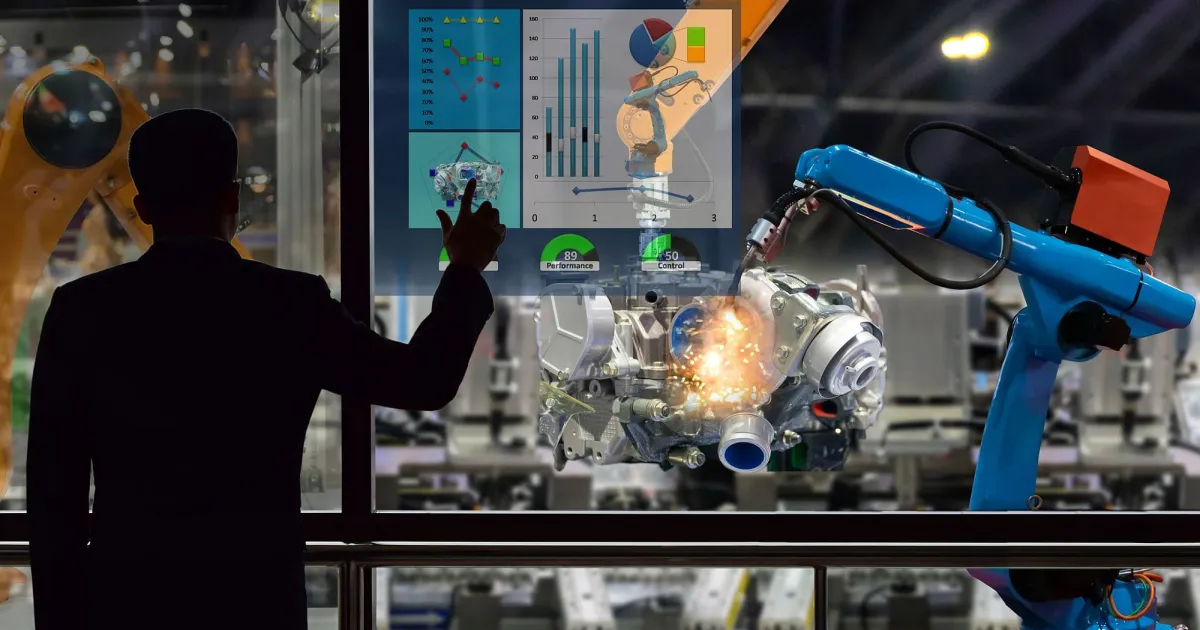The advent of AI for pharmaceutical quality checks marks a significant turning point in ensuring the safety and efficacy of drugs. In a world where the pharmaceutical industry is under constant pressure to deliver safe and effective medications, the integration of AI technologies is not just beneficial but essential. This article explores the transformative impact of AI in enhancing pharmaceutical quality checks, ensuring that every pill, capsule, and dose is safe for consumption.

Understanding AI in Pharmaceutical Quality Control
The role of AI in pharmaceutical quality control is primarily to enhance the precision and efficiency of quality checks. AI technologies, with their ability to process vast amounts of data quickly, are well-suited for the pharmaceutical industry where even the smallest error can lead to significant consequences.
The Need for AI in Quality Checks
Traditional quality control methods are often time-consuming and prone to human error. With AI, these processes are automated, reducing the risk of errors and increasing efficiency. This automation is crucial in maintaining high standards of drug safety and efficacy.
How AI Enhances Pharmaceutical Quality Checks
AI technologies offer several advantages that enhance the quality check processes in the pharmaceutical industry. By automating routine checks and analyses, AI frees up human resources for more complex tasks, thereby increasing overall productivity and reliability.
Data Analysis and Predictive Maintenance
AI’s ability to analyze large datasets quickly and accurately helps in predicting maintenance needs before they become critical issues. This predictive capability ensures that machinery and processes are always in optimal condition, reducing downtime and maintaining quality standards. Learn more about AI in semiconductor quality.
Benefits of AI in Drug Safety
The application of AI in pharmaceutical quality checks significantly enhances drug safety. By identifying potential issues before they arise, AI ensures that medications are safe for consumption and meet all regulatory standards.
Real-time Monitoring and Feedback
AI systems provide real-time monitoring and feedback, allowing for immediate corrective actions. This capability is vital in preventing defective products from reaching consumers, thereby safeguarding public health.
Challenges and Solutions
Despite its advantages, the integration of AI in pharmaceutical quality checks also presents challenges. These include the need for significant initial investments and the requirement for specialized skills to manage and maintain AI systems.
Overcoming Implementation Challenges
To overcome these challenges, companies are investing in training and development programs to upskill their workforce. Additionally, partnerships with AI technology providers can help in smooth transitions and successful implementations. Discover more about AI in automated visual quality.
Future Prospects of AI in Pharmaceuticals
The future of AI in pharmaceutical quality checks looks promising. With continuous advancements in AI technology, the pharmaceutical industry can expect even greater improvements in efficiency, accuracy, and overall drug safety.
Innovations on the Horizon
Ongoing research and development in AI are leading to innovations that will further enhance quality checks. These include the use of AI in personalized medicine and precision dosing, which are set to revolutionize the industry.
AI and Regulatory Compliance
AI technologies are also helping pharmaceutical companies meet stringent regulatory compliance standards. By automating documentation and reporting processes, AI ensures that all regulatory requirements are met efficiently and accurately.
Streamlining Compliance Processes
AI streamlines compliance processes, reducing the risk of non-compliance penalties and ensuring that all products meet the necessary regulatory standards before reaching the market.
Integrating AI into Existing Systems
For companies looking to integrate AI into their existing systems, it is essential to choose the right technology and partners. This integration should be seamless and cause minimal disruption to current operations.
Choosing the Right AI Solutions
Choosing the right AI solutions requires a thorough understanding of the company’s specific needs and the capabilities of the AI technologies available. Consulting with experts and conducting pilot tests can help in making informed decisions.
Conclusion
The use of AI for pharmaceutical quality checks is a game-changer for the industry. It enhances efficiency, accuracy, and safety, ensuring that every medication is safe for consumption. As AI technology continues to evolve, its role in pharmaceutical quality control will only grow, promising a safer and more efficient future for drug safety.

FAQs
How does AI improve pharmaceutical quality checks?
AI improves pharmaceutical quality checks by automating processes, reducing human error, and providing real-time data analysis, resulting in more accurate and efficient quality control.
What are the challenges of implementing AI in pharmaceuticals?
The challenges include high initial investments, the need for specialized skills, and ensuring seamless integration with existing systems.
What is the future of AI in pharmaceutical quality control?
The future looks promising with ongoing innovations and advancements in AI technology, leading to enhanced drug safety, efficiency, and regulatory compliance.
For more insights on AI-driven quality control, visit AI-driven quality control in manufacturing.
This article contains affiliate links. We may earn a commission at no extra cost to you.

